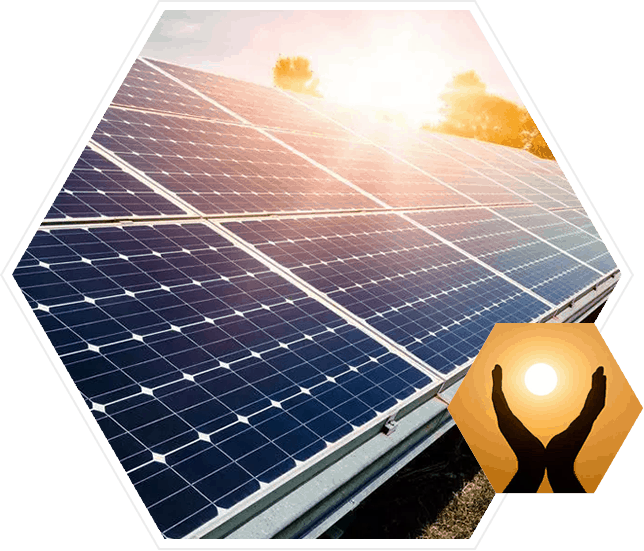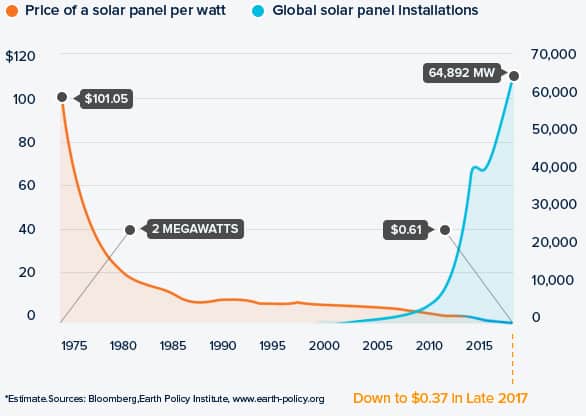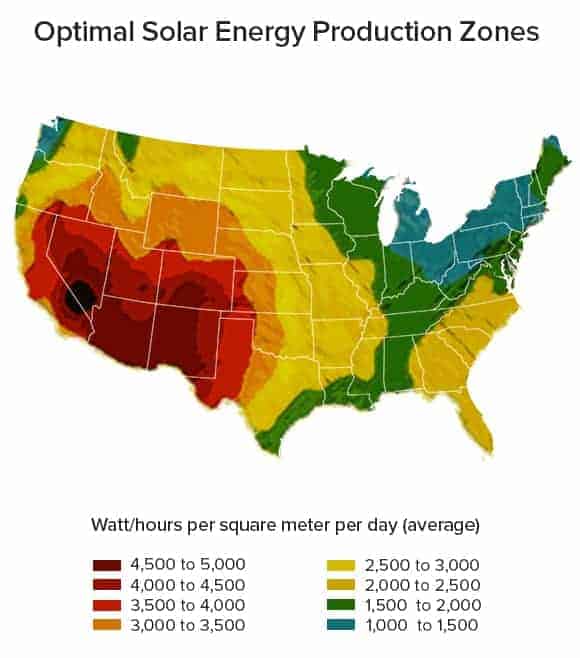Put solar to work for your tribe.
Inquire about becoming a SUN partner today.

Solar Utility Network (SUN)
SUN makes it easy for tribes who want to take advantage of the tremendous opportunity of solar energy. The unique SUN partnership model means we put our extensive experience, resources, and dedication to provide an optimal path that limits your risk and maximizes benefits for your tribe.
From initial planning to construction and management, you can be assured that all the necessary work will be done with integrity and transparency, setting the stage for a beneficial partnership for years to come. To learn more or to begin the application process, simply complete the form below, and a SUN representative will be in touch.
The time is right for solar
Costs have plummeted in recent years, making solar more economically viable than ever. Cost per kilowatt-hour is quickly reaching parity with fossil fuels. Solar is a secure investment. The technology is simple, reliable, with very low maintenance costs. Energy generation can be easily calculated and is insulated against shifting fossil fuel prices.
Solar promotes energy independence and a cleaner environment. Unlike fracking, solar plants can be deployed without toxic chemicals and wasting vast quantities of freshwater. And unlike coal, oil, and natural gas, solar does not produce carbon emissions, and does not rely on ecosystem destroying pipelines, infrastructure and refineries.

Create new value with underutilized land.
Vast expanses of Native lands are arid and unsuitable for agriculture or commercial development, but fall within favorable zones that are optimal for solar energy. With solar, this land now becomes an income-generating asset that can benefit your tribe instead of sitting unused. Due to low environmental impact and maintenance costs, solar installations are easily expandable unlike conventional power plants.
SUN includes expansion planning in our land survey and analysis so you can easily see the economic benefits to scaling up the capacity of your power plant so it becomes more valuable over time. And should you ever wish to close a plant, it can be dismantled without long-term harm to the land. The time has never been better to utilize unused land to produce clean renewable energy that can be distributed and sold to promote economic development for your tribe for years to come.

The challenges and pitfalls of getting into solar
While the cost of solar has come down dramatically, building a utility-scale plant capable producing a viable quantity of energy is a significant expense, especially difficult for tribal governments with limited budgets for utility investments.
Building a solar plant is complex. Depending on the location of the power plant relative to grid connection points, a series of power distribution lines, inverters, metering and monitoring equipment, and voltage regulators need to be designed and installed.
Securing power purchase agreements (PPAs), especially in cases where two or more power companies operate in the same geographic region entails substantial legal and administrative costs. Getting PPAs can be a slow and difficult process, taking years of work.
Finally there is the matter of securing favorable pricing for the energy you sell to the utility company. As an individual customer, you have limited leverage when negotiating your energy selling price with large utility companies, making it difficult to lock in favorable rates over time with predictable revenue.
Inquire about becoming a SUN partner today.
The SUN Solution

SUN’s unique tribal partnership model minimizes the risk and investment burden from the partners. SUN handles all of the financing and heavy lifting starting with the initial site surveys, design and planning, and construction of your solar plant. Leveraging our established utility company PPAs and legal team, we also handle electricity distribution, monitoring, and sales, acting as your advocate and liaison with the utility company. Furthermore, the SUN model is designed in such a way as to insulate tribes from liability.

As a co-owner in the network, SUN represents you together with other tribal partners to negotiate the best selling price with the help of our management and legal team along with our established power purchase agreements with large power companies. This lets us distribute, monitor and sell power generated by tribal solar plants to the electrical grid. As a co-owner of the company, you also get voting rights so you are part of the decision making process into the future.

SUN takes care of facilitation of all partner meetings, preparing regular reports, and providing access to data. Tribal partners have full access to all records pertaining to the network including sales and financial data. As a network member your revenue share is derived from all network sales, not just your power plant. This increases your revenue and further limits risk, all by virtue of your being a SUN partner. And you are free to sell your shares and exit the network at any time.

Becoming a SUN Partner
To optimize benefits, SUN has a limited number of tribal partner seats available. If you’d like to apply to become a SUN partner, simply complete the form below and a SUN representative will be in touch to arrange an introductory conversation. Once your tribe is qualified, the process to becoming a partner is straightforward, consisting of five phases.
Analysis and Discovery
Analysis and Discovery. This step includes a preliminary meeting to assess mutual fit, land survey to identify potential sites and requirements for a SUN power plant, plan review and execution of partnership agreement.
Planning and Development.
Planning and Development. Administration setup, site selection, design and pre-construction documentation and approvals
Power Plant Construction
Power Plant Construction. Site preparation, equipment purchase and logistics, infrastructure(roads, fences, security), supporting structure and mounts, panels and junction box installation,setting up transformer substations and inverters, wiring, grid connection and performance testing.
Monitoring System
Monitoring System. Installation, testing and setup of monitoring equipment for remote monitoring of plant operation.
Commissioning
Commissioning. Finalize system activation and utility connection verification, establish maintenance timeline, coordinate with council appointed representative for board review and meeting schedule, commencement of plant operation.

Partner seats are limited
Register your interest by completing the form below.
Application Request
Complete the form below and a SUN agent will be in touch
Your information will remain confidential and will never be shared or sold.